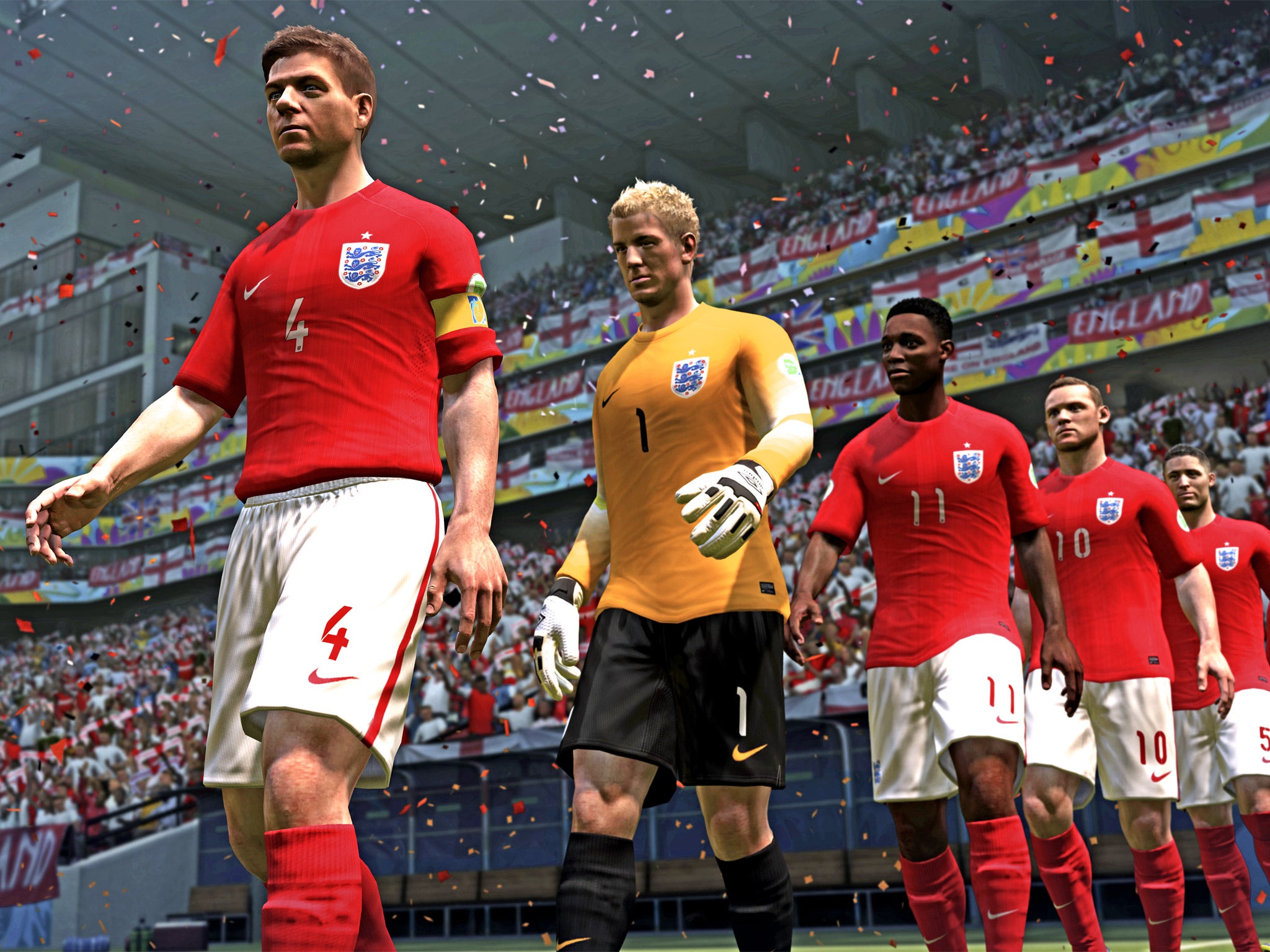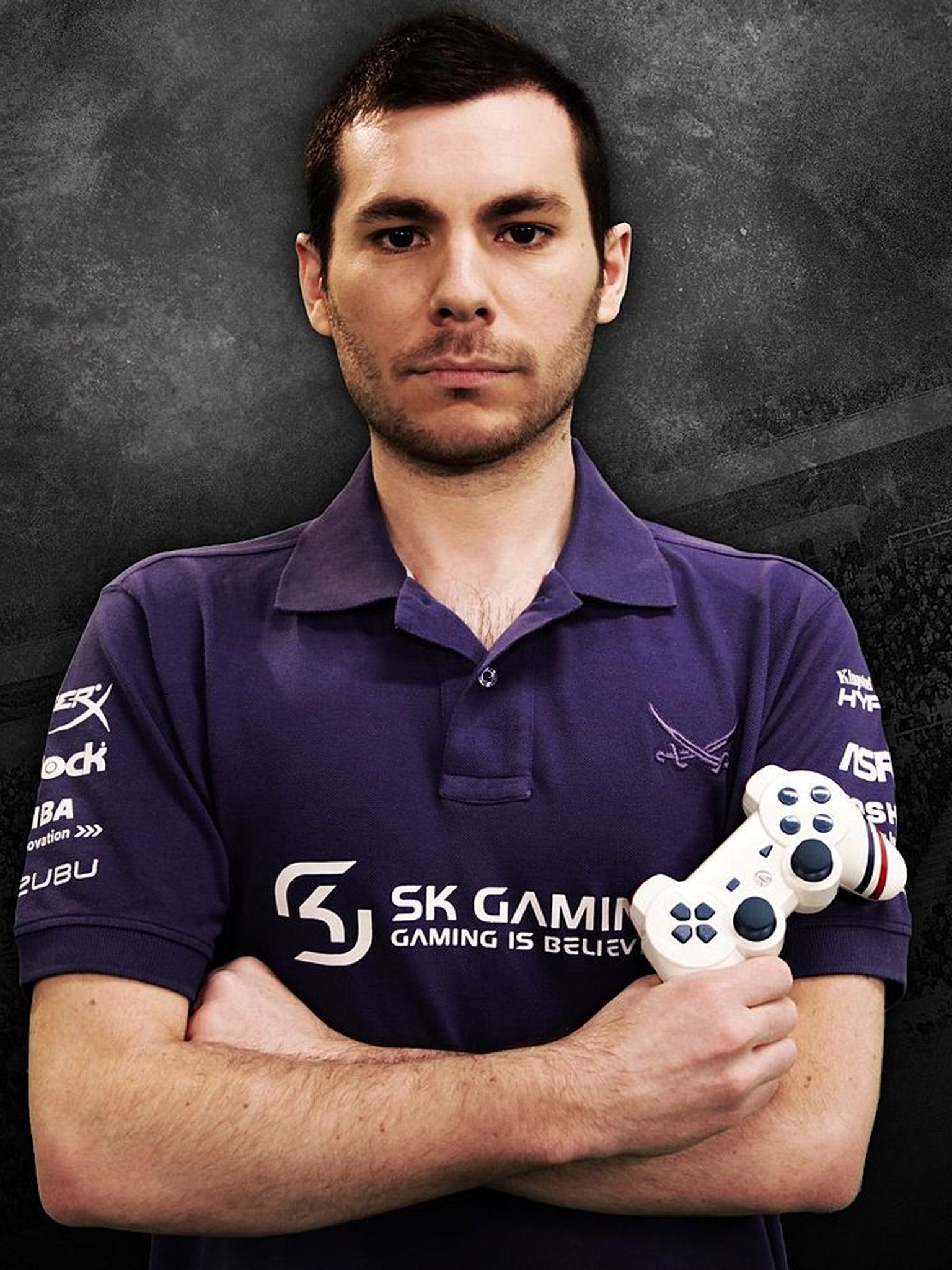Fifa Interactive World Cup: Meet the virtual footballers with their sights set on winning
The players are training hard for the tournament of their careers, which this year takes place in Brazil. On video games

Your support helps us to tell the story
From reproductive rights to climate change to Big Tech, The Independent is on the ground when the story is developing. Whether it's investigating the financials of Elon Musk's pro-Trump PAC or producing our latest documentary, 'The A Word', which shines a light on the American women fighting for reproductive rights, we know how important it is to parse out the facts from the messaging.
At such a critical moment in US history, we need reporters on the ground. Your donation allows us to keep sending journalists to speak to both sides of the story.
The Independent is trusted by Americans across the entire political spectrum. And unlike many other quality news outlets, we choose not to lock Americans out of our reporting and analysis with paywalls. We believe quality journalism should be available to everyone, paid for by those who can afford it.
Your support makes all the difference.Bruce Grannec is hoping to be a major star in Brazil this Summer. At 27 years old, he is the three-times champion of his nation, France, and he has four world titles behind him. Finding himself in the finals of a major Fifa tournament once more, he hopes to become the most successful footballer of all time.
He trains reasonably hard – "I usually play for one hour each day," he says – and he relies on the support of his coach, Zai, and sparring partner Brak. But those who discover that his training tends to consist of sitting in front of a games console, sweating over a controller, should know that Grannec is aiming to win the Fifa Interactive World Cup, a tournament that is attracting the attention of hundreds of thousands of fans across the globe.
Grannec, a professional gamer, won the tournament last year and he is defending his title against 19 other players who are well practised in EA Sports' Fifa 14 video game, including 20-year-old students David Bytheway and Ty Walton from England, and an 18-year-old investor, Adam Johnston, from Ireland.
For the first time since the tournament began in 2004, the Grand Final will be taking place in the host nation of the real World Cup and Grannec, who also won in 2009, is hoping for a hat-trick. When added to the Electronic Sports World Cup he won in 2006 and 2012, and the three championships he bagged in France in 2009, 2011 and 2012, he is the undoubted Messi of the virtual footballing world.
The Fifa Interactive World Cup is, according to Guinness World Records, the largest video game tournament in the world. Last year, the final was held in Madrid and a staggering 2.5 million people competed for a place, double that of the previous year. A similar number has again taken part in this year's contest, the final of which will be spread over two days on 2 and 3 July in Brazil.
Again, the overall winner will be invited to the Fifa Ballon d'Or, the annual best-player awards, and receive just shy of £13,000. While that may be a little over seven hours' salary for the England and Manchester United striker Wayne Rooney, for gamers such as Grannec, the money is secondary to the thrill of the competition. So, what is his secret?
"I don't really know." he says. "I think to go far in a competition you have to gather three conditions: be at your top level on the day, have a bit of luck, and most importantly, keep focused mentally."
I sense, though, that there is more to it than that. All of the finalists, it seems, dissect the (video) game and try to learn every new feature that is introduced. In the same way that a real footballer will practise penalties or perfect the curl of the ball, virtual players try to hone each of their required skills to perfection.
"When the new Fifa is out, I play a lot more in order to get used to the game and its new features," says Grannec, an AC Milan fan who started playing Fifa in 1995 on the Sega Mega Drive. "I test the different tactics and the teams. I look to find the best sensations and be sure of my choices. I try to improve in certain areas as well to add more strings to my bow."
The tournament is played using Fifa 14 on the PlayStation 3 and qualifiers began last October. Each of the competitors has had to go through a gruelling process, competing in six online qualification seasons with the top two on the leaderboard in each going through to the Grand Final. Six places are awarded to the victors of six live community qualifiers and the remaining two seats go to the defending champion and the winner of a tournament held in the host nation (which was won this year by Rafael Fortes from Rio de Janeiro).
As well as the main competition, the Fifa Interactive World Cup organisers also give out an award for the best goal of the tournament. Daniel Angeles Lujan, a 24-year-old from Peru who spends every Sunday playing real football with his friends, received 57 per cent of all votes for the tournament's six shortlisted goals. He is in Peru's national virtual-football team and he trains for up to 90 minutes each day. "I had a feeling my goal would win – it's hard to achieve and some Fifa professional gamers have told me this," he says.
It's all a far cry from the days when the Fifa games made their debut in the early Nineties, in a world where competitive gaming meant getting a few mates around to the house and sharing a couple of controllers. But it was a very different ball game then: Fifa had competition from the likes of Sensible Soccer and Kick-Off. These days, having emerged victorious in its more recent battles with Pro-Evolution Soccer, Fifa, in effect, has the pitch to itself.

In the process, it has become the longest-running football video game series, and Fifa 13 was the best-selling football game of all time with 14.5 million sales. It has not only crossed into the mainstream but into the dressing rooms of real-life football. Last October, Leyton Orient banned its players from playing Fifa on a match day, believing it to be non-conducive to putting in a good real-life performance, and appearing on the cover of a Fifa game is seen as a badge of honour for the very best players (earning them extra cash in the process).
Such is EA Sports' dominance of the football market, it seized the World Cup licence from the former stalwart, the Birmingham-based publisher US Gold, in 1998 and has retained it ever since.
The Fifa Interactive World Cup was introduced when it became obvious that there was an intense level of competition among players, the average age of whom is 26, drawn primarily from Europe and North and South America.
"The popularity of any game is the core gameplay and core game mechanic and that's not just unique to Fifa, it's at the heart of all of the most popular games around," says Nick Channon, senior producer of Fifa 14. "But what we've seen over the past five years in particular is the proliferation of online play. There's a real competitive nature among those who play online, whether it is with a friend or with someone you don't know."
Indeed, e-sports is big business. There are many professional game tournaments taking place around the world and they appeal to both sexes (even though, disappointingly, the Fifa finals are made up of all men). The inaugural WorldWide Web Games in 2006 was won by Kavitha Yalavarthi, making her a dollar millionaire. Similar levels of prize money have been offered since.
Twitch.tv regularly shows highly competitive contests and, having doubled its community to 45 million monthly users thanks in part to being integrated into PS4 and Xbox One consoles, it has reportedly attracted a bid of more than $1bn (£596m) from Google. There is an appetite not only for showcasing video game skills but watching other people play and the tens of thousands of Fifa videos on YouTube is testament to that.
Having seen some of the most successful online players at first hand, Channon is full of admiration for those who prefer to play sitting down rather than in real-life. "You can't help but admire them," he says. "These players show that the key is to think quickly, they approach the game like real football. They show skill, they are disciplined in defence. They show that, just as in real sport, success comes with practice and hard work: the qualities you need in real football are the same as those needed to win the Fifa Interactive World Cup."
True, although they probably don't work up quite as much of a sweat as their real-life sporting counterparts.
Join our commenting forum
Join thought-provoking conversations, follow other Independent readers and see their replies
Comments